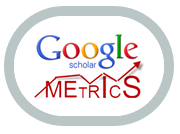AN ANALYSIS OF IDEOLOGIES IN FAKE NEWS ABOUT THE HISTORY AND USE OF THE CHLOROQUINE IN THE COVID-19 PANDEMIC
DOI:
https://doi.org/10.47456/pl.v13i34.41467Keywords:
Fake News, Chloroquine, Covid-19, Ideologies, IndexicalityAbstract
Deleuze (1990/1992) proposes that the societies of control perform ways of vigilance and authority by modulations. Consequently, any space would be subject of these means of control. For this reason, the objective of this article is to analyze ideologies present in fake news about the history and use of the chloroquine in the context of the Covid-19 pandemic through the deleuzian vision of the societies of control, by setting them in discourses spread through social medias and their algorithms. Consequently, a historical review about fake news and social media was necessary. The website for the Brazilian fact-checking and combating misinformation platform, Agência Lupa, was used as a way of generating the data from the present article. The methodology applied here consists in the qualitative analysis of fake news taken from fact-checks of the website by using two main theoretical and analytical constructs: the chronotope (Blommaert, 2015) and the indexicality (Silverstein, 2006). With this in mind, this article proposes to analyze how some signs – being them linguistic or not – evoke different times and spaces, connecting discourses and ideologies in favor of the view of government of the then-President of Brazil, especially when some discourses were against his idea of government.
Downloads
References
BLOMMAERT, J. (2015). Chronotopes, scales and complexity in the study of language in society. Annual Review of Anthropology, 44(44), 105-116. http://dx.doi.org/10.1146/annurev-anthro-102214-014035
BLOMMAERT, J. Ideology. In. Discourse: Key topics in sociolinguistics. Cambrige: CUP, 2005, p. 158-202.
BURKHARDT, J.M. (2017). History of Fake News.In Library Technology Reports (Ed.), Combating Fake News in the Digital Age.Acesso em: 31 ago., 2022, https://journals.ala.org/index.php/ltr/article/viewFile/6497/8631.
DELEUZE, Gilles. (1990/1992). Conversações. Trad Peter Pál Pelbart. São Paulo: Editora 34. Post-scriptum sobre as sociedades de controle.
FABRÍCIO, Branca Falabella. Linguística aplicada como espaço de "desaprendizagem": Redescrições em curso. In: MOITA LOPES, Luiz Paulo da et al, (org.). Por uma linguística aplicada indisciplinar. 1. ed. São Paulo: Parábola Editorial, 2006. cap. 1, p. 47-65. ISBN 978-85-88456-49-5.
GIANSIRACUSA, Noah. How Algorithms Create and Prevent Fake News: Exploring the Impacts of Social Media, Deepfakes, GPT-3, and More. 1. ed. Nova Iorque: Apress, 2021. 239 p. ISBN 978-1-4842-7155-1. E-book (239 p.).
LÖWY, Michael. (2019) Neofascismo: um fenômeno planetário – o caso Bolsonaro. In: A terra é redonda. Disponível em < https://aterraeredonda.com.br/neofascismo-um-fenomeno-planetario-o-caso-bolsonaro/ > Acesso em 31 de agosto de 2022.
MOITA LOPES, Luiz Paulo da et al, (org.). Por uma linguística aplicada indisciplinar. 1. ed. São Paulo: Parábola Editorial, 2006. ISBN 978-85-88456-49-5.
SANTAELLA, Lucia. A Semiótica das Fake News. Verbum, [S. l.], v. 9, n. 2, p. 9-25, 30 set. 2020. Disponível em: https://revistas.pucsp.br/index.php/verbum/article/view/50522. Acessoem: 10 out. 2022.
SILVERSTEIN, Michael. Pragmatic indexing. In: Jacob Mey. Concise Encyclopedia of Pragmatics.London: Elsevier, 2006, p.756-759.
TUFECKI, Z. (2015) Algorithmic harms beyond facebook and google: emergent challenges of computational agency. COLO. TECH. LJ. (vol. 13)
Downloads
Published
How to Cite
Issue
Section
License
Copyright (c) 2023 PERcursos Linguísticos

This work is licensed under a Creative Commons Attribution-NonCommercial-NoDerivatives 4.0 International License.
O autor de submissão à Revista PERcursos Linguísticos cede os direitos autorais à editora da revista (Programa de Pós-Graduação em Linguística - UFES), caso a submissão seja aceita para publicação. A responsabilidade do conteúdo dos artigos é exclusiva dos autores. É proibida a submissão integral ou parcial do texto já publicado na revista a qualquer outro periódico.
Os trabalhos aqui apresentados utilizam a licença Creative Commons CC BY: Attribution- NonCommercial- NoDerivatives 4.0 International. Para mais informações, verificar: https://creativecommons.org/licenses/by-nc-nd/4.0/
Os trabalhos na revista são arquivados pelo sistema Rede de Preservação PKP (PKP PN) e LOCKSS





